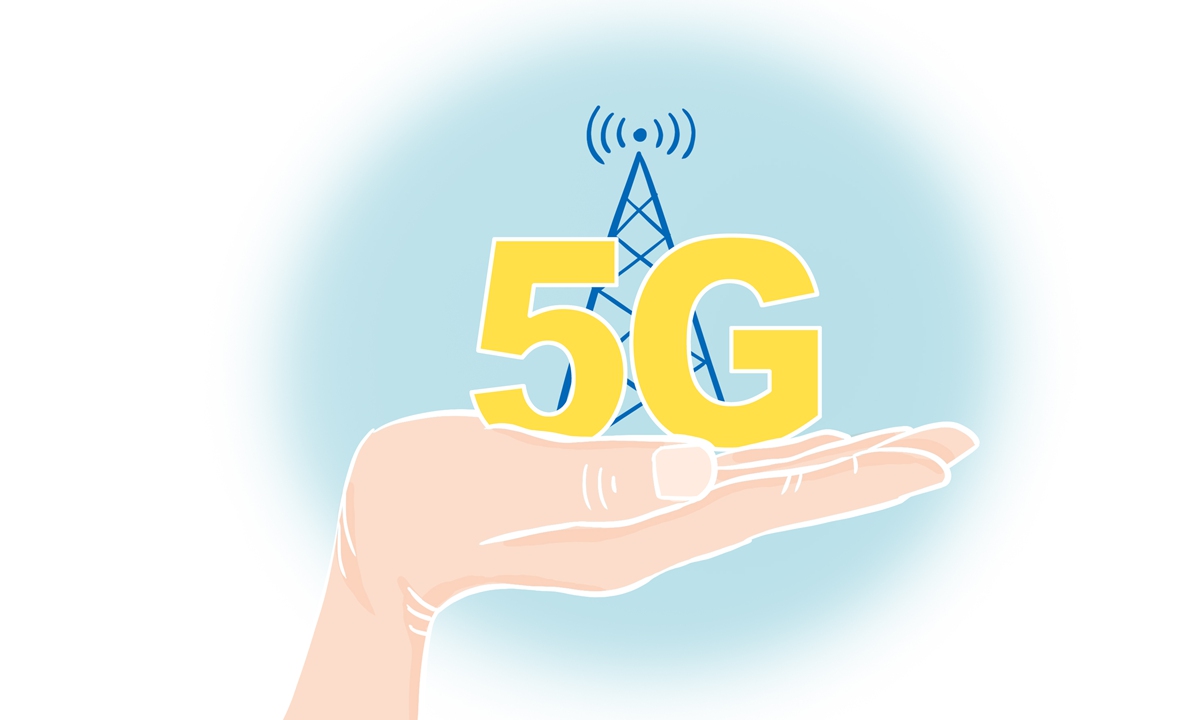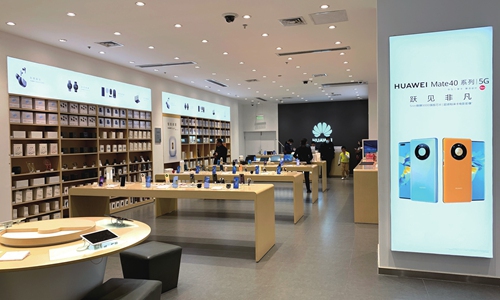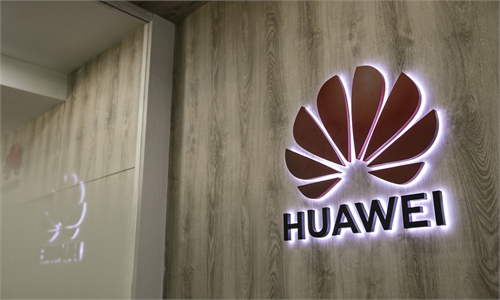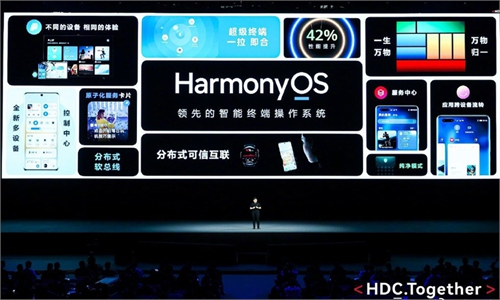COMMENTS / COLUMNISTS
Crackdown by US hardens Huawei's resolve to boost new tech R&D

5G Illustration: Chen Xia/GT
Boosted by Chinese government's support for building massive domestic market demand for new and advanced technologies, Huawei Technologies, armed with its superior 5G and AI empowered solutions, is integrating closely with nearly all major segments of Chinese economy to aid the "century transition" - pulling the country ahead in economic growth.
In October, Huawei announced it has set up four "task force corps" to lead a foray into a broad array of new businesses, which include digitalized mining and energy storage, intelligent photovoltaic solutions, smarter cars and highways, and submarine cables and ports management. Ren Zhengfei, company founder and chief executive officer, said he will personally lead the effort.
Sitting on a cash reserve of more than $55 billion and armed with a team of more than 80,000 world-class scientists and engineers in nearly all disciplines, Huawei has set its eyes on extending significantly its business footprint in China, which, at the same time, will greatly help China's industrial and services sectors upgrade to a higher level.
Ren Zhengfei confessed last year that the Chinese tech giant was forced by the US government to change course by restructuring its business focus. The company has been placed on a US government trade blacklist since May 2019 that bans Huawei from obtaining high-end semiconductor chips and software made with American technology without US government approval. The relentless trade embargo stifled Huawei's previously globally leading smartphone business, forcing it to divest its budget handset brand.
Earlier this month, the US Secretary of Commerce Gina Raimondo told the US media that her department will continue the Trump administration's efforts to block Huawei from obtaining advanced microchips and other accessories. It seems that the Biden administration will not reverse course on assaulting China's technology stars, as Washington is immersed in the mindset of suppressing and suffocating China's economic and technological rise.
There is a saying in the world that best explains the US' rule of competition - When the US cannot compete, Washington elites sanction and put up barriers at other country's companies so American companies will be able to compete on a "level field." And, US politicians will knock on their heads together to come up with a rope to entangle the contesting company, such as endangering the US' national security or stealing American technology. To date, Washington still can't provide one single piece of evidence that Huawei "spied" or "hacked" into other countries.
Due to a dearth of microchips, Huawei's smartphone business has withered, with its global market share falling to No. 9 now from No. 2 in early 2018, its smartphone buyers evaporating from Europe to China. Nevertheless, the company's overall profits have kept growing in the past three quarters, thanks to its state-of-the-art 5G networks which sold particularly well in China, and other markets like the Middle East region, Russia, Asia and Europe.
By October 18, China had rolled out more than one million 5G base stations, with Huawei taking the majority share. The company remains to be the world's top vendor in telecom equipment offerings. Thanks to the ultra-high-speed, low-latency mobile broadband, China is now leading the world in ICT-enabled innovations, such as ubiquitous e-commerce, mobile paperless payment, smarter industrial robotics and big data-boosted AI solutions.
For Huawei, the US government's onslaught has made the company hardened on its road of new technology research and development.
In 2020, the company said it spent $22 billion on innovation-focused projects, more than Apple spent each year. In addition to investing on 6G research and fostering its own microchips supply chain independent of the US, the company, relying on its advanced 5G solutions, is making inroads into other fields, including both hardware and software. Huawei has announced plans to expand 5G mining solutions to all mines in China.
It has formed partnerships with the State Grid Corporation to establish efficient energy storage projects in China, and has recently signed a similar deal with a Saudi Arabian company. It sets up novel ventures by offering 5G-guided navigation systems used in smarter cities, electric cars, port management, smarter farming and animal husbandry and more.
Huawei has also advanced in developing top-caliber software. Cut off by the US government restrictions from most Google Android features, Huawei developed the in-house operating systems called HarmonyOS which is compatible with a broad range of devices and appliances. Chinese manufacturers of internet-connected home appliances such as Midea and Haier have adopted the system.
More than 150 million end users are now running the Harmony OS, and by the end of this year the number will amount to 200 million, making it the world's fastest growing operation system. In order to build up China's own software ecosystem, it is necessary and also imperative for the Chinese government to provide policy incentives to major Chinese phone makers, like Xiaomi and Vivo, to embed the Harmony OS instead of Android OS in their handsets.
Starting from 3G about 10 years ago to the present 5G network, Huawei has been leading the world in ICT research and mobile broadband innovation. The US onslaught on the company won't be able to decimate the giant, and Ren said "Huawei people are working hard and deserve to live better". So do the 1.4 billion hard-working Chinese people.
The author is an editor with the Global Times. bizopinion@globaltimes.com.cn



